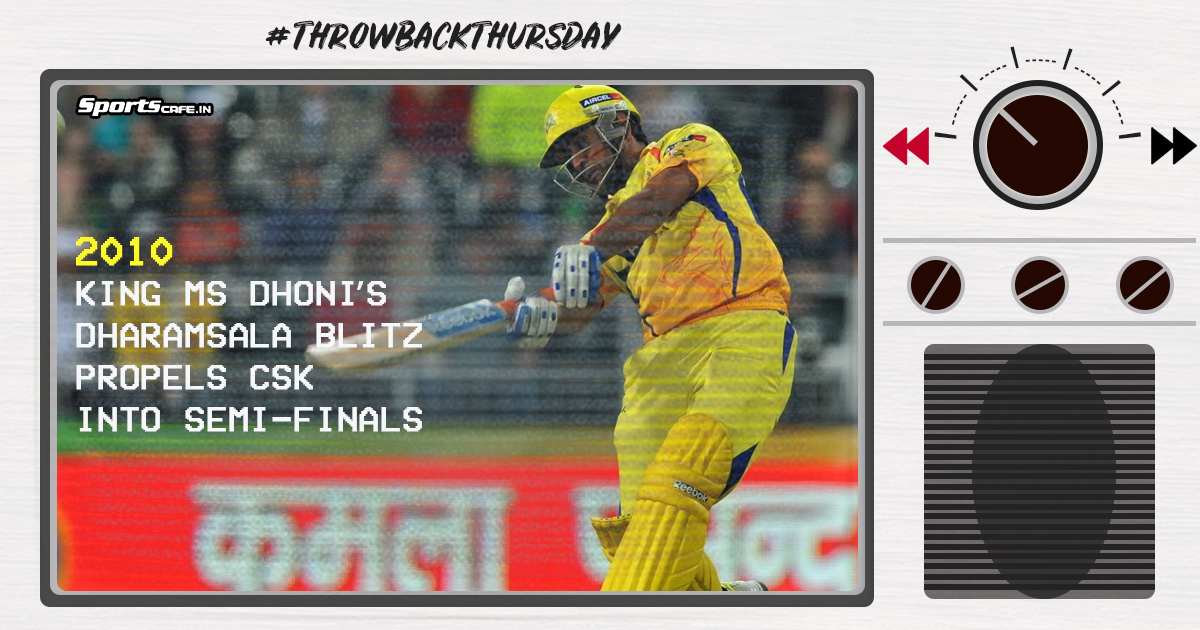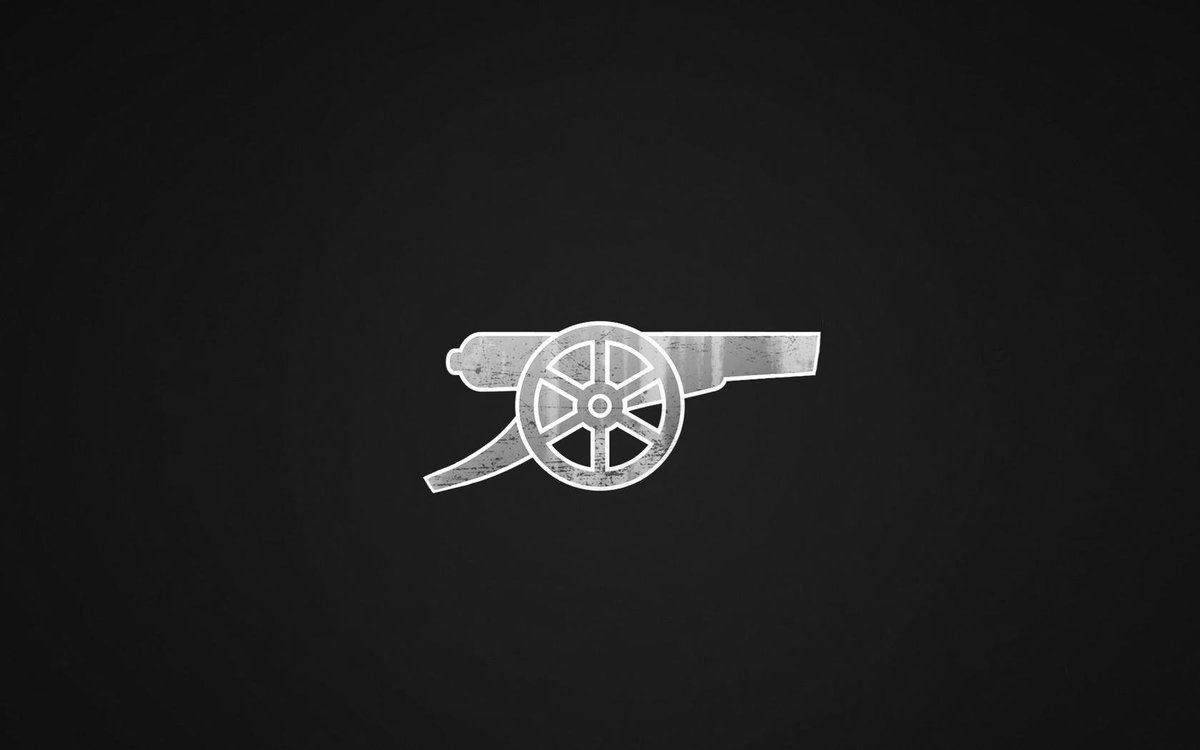Throwback Thursday | King MS Dhoni’s Dharamsala blitz propels CSK into semi-finals

SportsCafe
Welcome to the series where we present you a moment, a game in history that has shaped the way the sport has been played, in our weekly segment ‘Throwback Thursday.' This week, we recap the iconic Dharamsala bout between CSK and KXIP in IPL 03, which changed the history of CSK forever.
It’s April 18, 2010, and we are at the Himachal Pradesh Cricket Association Stadium in Dharamsala, arguably the most serene and beautiful ground in the entirety of the world, for the all-important clash between Kings XI Punjab and Chennai Super Kings. The lush and scenic mountain ranges in the backdrop of the ground, that were visible a couple of hours ago, have vanished, for the night skies have broadened their presence at the stadium, but that is not the only thing dark out there in Himachal; Also dark is CSK’s future in the competition, with them needing a victory in this encounter to stay alive in the tournament. The only ray of light for the yellow army is their skipper MS Dhoni, who needs to score 4 runs off the last 3 balls to propel his side into the semis. The responsibility of stopping the CSK skipper from doing so is with Irfan Pathan, who already has conceded 12 runs off the first 3 balls. But before we get to the climax, it’s important for us to hit the pause button and understand how we got to this stage.
To apprehend the context of this encounter, it is important to truly understand the enormity of the competition. By 2010, the Indian Premier League (IPL) had well and truly established itself as the biggest and the grandest franchise competition in the history of the sport, despite it being only three years old. But in particular, the 2010 edition of the tournament, before its commencement, was being viewed as potentially the biggest sporting event that was going to be held in the country’s history, for the popularity of IPL had gone off the charts by then. After the enormously successful inaugural edition in 2008, the tournament had to be moved to South Africa in 2009, due to security complications in India owing to the tournament clashing with Lok Sabha elections in the country. So 2010, basically, marked the homecoming of the biggest franchise competition in the world. And it was big. In fact, just calling it ‘big’ would actually be a massive understatement. It was HUGE.
Heading into the third edition of the tournament, no one quite knew what to expect. The first season was won by the supposed weakest team in the competition, Rajasthan Royals, and the second season saw the team that finished bottom in the first season lift the title, beating the side that finished second-to-bottom in 2008. Chaos was all that ensued, albeit in a weird but good way. But amidst all the chaos, there was one team that stood out from the rest, though unfortunately having no accolades to show for their quality and consistency - Chennai Super Kings.
Led by the Indian skipper himself, the Super Kings, or more prominently known as CSK, lost the final of the first season by a whisker and then once again in season two, reached the semi-final. While there was an air of uncertainty surrounding the rest of the teams, all of who had the tendency to blow hot and cold, there was nothing inconsistent about the Super Kings - they were solid, well-knit and knew exactly what they needed to do to win games. Let’s just say that they figured out the concept of IPL way earlier than most of the other teams; the irony, though, was that they had not won the competition despite that.
So heading into IPL 03, there was a considerable buzz surrounding the Super Kings, who now had to deal with the expectations. That the tournament was played in India - in spin favourable conditions, which was their forte - added to their expectations and 2010 was expected to be the year they finally break the IPL duck.
But cricket matches are not won on paper, and the sport itself provides more plot twists than any crime thriller out there in the movie industry, and so the Cricketing Gods had CSK lose their very first encounter of the 2010 season against defending champions Deccan Chargers - at home. But when you have a cool and calm influence like Dhoni in your dressing room, you just won’t hit the panic button (ever) and so unsurprisingly, CSK stuck to their mantra of doing things the only way they know - and it paid rich dividends. They ended up winning their next two matches and had established that the defeat to Deccan in game one was nothing but an unexpected blip.
But what followed in the next four games left the entire team - and hundreds of thousands of fans who’d jumped into the CSK bandwagon ahead of the tournament - shell-shocked as they lost each of their next four encounters, meaning four points was all they had from their first SEVEN encounters. For a team that had breezed through to the semi-finals in each of the first two editions without breaking a sweat, this was unfathomable; some even considered it rock bottom.
But the problem for CSK was not just that they were not stringing together wins, but that every other team were significantly upping their game. Barring Kings XI Punjab, every other side in the competition notched up more wins than CSK at the half-way stage and ironically, KXIP’s only win of the season up until that point came against CSK. The chips were down and the mountain looked like an impossible one to climb and CSK, for the first time in IPL history, were cross-questioned and asked to respond.
The thing about champion sides, though, is that adversity tends to bring the best out of them and boy you can be sure that CSK were one. Needing to win 5 of their remaining seven games in the group stages, the Super Kings won four of their next five games. Heroes are born in times of despair, and at that very moment, CSK found their hero in the form of local boy Murali Vijay. It was the Tamil Nadu lad who kick-started the flurry of victories with a 39-ball 78 against RCB at Chepauk, then, in the very next game, he smacked a 56-ball 127 against Rajasthan Royals to both announce his arrival to the big stage, and CSK’s to IPL 03. They left it late to arrive, but at that point, it didn’t matter.
So, needing to win just one of their last two remaining matches looked pretty simple for a team that had momentum on its side but things became complicated when they slumped to an embarrassing defeat at home against Delhi Daredevils in the penultimate group game. What this meant was that the Super Kings’ final group game against Kings XI Punjab became a do-or-die encounter; lose and they were out of the competition.
Despite the tag attached to the game, this was built up as a pretty straightforward victory for CSK - Punjab were bottom with 8 points and had bowed out of the competition weeks ago. But well, we know how sports work, don’t we? A thumping 88 from Australian Shaun Marsh catapulted KXIP to a ginormous total of 192 and CSK were staring at chasing close to 10 an over in a ground and on a pitch which they were absolutely clueless about.
Despite losing the openers cheaply, healthy contributions from the duo of Raina and Badrinath meant that CSK hung in there despite the required rate climbing and, as the script had it, it had to come down to the skipper Dhoni to take them over the line. Having bludgeoned his way to 36 off 25 balls, Dhoni was left with the task of hitting 16 runs off the final over, bowled by Irfan Pathan, to take CSK to victory. 12 points were all CSK had in their kitty, and they already had Delhi leapfrog them earlier to 14 points, and had KKR breathing down their necks with 12 points and a game left in hand. To put it simply, Dhoni had to hit 16 runs in the final over to take CSK into the semi-final. Of course, that their NRR was superior than both DD and KKR helped them.
4, 2 and 6 were what Dhoni started the over off with, and all of a sudden, the equation was down CSK needed 4 off 3 balls with 6 wickets in hand to book a place in the semi-final. Yellow shirts in the stands were few and far between, but millions of CSK fans in their homes, after the third ball, were jumping in uncontrollable joy and ecstasy. Ten seconds were all it lasted, though, for, at the flick of a switch, the faces turned serious, knowing the job was still not fully done. And so it brings us to THE MOMENT.
Irfan Pathan, with sweaty palms and an anxious face, sets himself up to bowl to MS Dhoni, whose presence, after having hit 12 off the first 3 balls, looks like it's bigger than the entire state of Himachal. The mountains have disappeared but none of it matters, for all 1.2 billion people care about is what happens on the next ball. The CSK players in the dugout are quietly confident but can’t bear to look, while their fans have their hands in their mouth, ready to ‘whistle podu’ once their lord and saviour thwarts them into the semis. Firmly behind Irfan Pathan are the fans of six other franchises apart from his own, for nothing would make them happier than seeing CSK lose and bow out of the tournament without even having a shot at winning it. The only force that has the ability to spoil their party is Dhoni, who, with a swing of his bat, can literally change the history of the Chennai Super Kings franchise. This is it.
Welcome to a moment in history.
